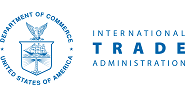Government/Policy
October 13, 2023
Commerce Updates AD/CVDs on Korean Cold Rolled
Written by Laura Miller
The US Department of Commerce’s International Trade Administration (ITA) is updating the antidumping and countervailing duties (AD/CVD) on cold-rolled steel imports from South Korea.

The ITA gave notice of its preliminary results in administrative reviews of the duties in the Federal Register. The final results are to be issued by early February.
AD Administrative Review
The AD review covers the one-year period ending Aug. 31, 2022.
The agency set initial weighted-average dumping margins of 1.3% for Hyundai Steel, 2.22% for KG Dongbu Steel, and 2.64% for Posco.
The dumping margins are higher than the 0% margins found for the three companies in the prior year’s administrative review.
CVD Administrative Review
The CVD review is considering the 2021 calendar year.
Preliminary subsidy rates were set at 0.78% for Hyundai Steel and 0.88% for Posco.
Again, these are higher than the rates found in the previous review. For 2020, the ITA set final rates of 0.27% de minimis for Hyundai, 0.20% de minimis for Posco, and 1.93% for non-selected companies. No duties are collected on de minimis rates, which are typically below 0.5%.







